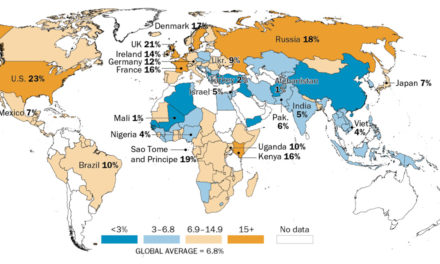Professor Christian Smith from the University of Notre Dame is one of the world’s most experienced and respected sociologists of religion studying how faith is passed down to our children. Smith and his team of researchers have just released a new book, Handing Down the Faith: How Parents Pass Their Religion on to the Next Generation (Oxford University Press), detailing how parents, by far, are the most successful and influential player in their kids adopting the Christian faith compared to any other influence.
Their findings rest on empirical evidence from more than 230 personal interviews conducted by their team, as well as research from three nationally representative, academically-robust data sets. In the book’s introduction, Smith and team confidently assert, “Some readers might be surprised to know that the single most powerful causal influence on the religious lives of American teenagers and young adults is the religious lives of their parents.” In staccato fashion, they add, “Not their peers, not the media, not their youth group leaders or clergy, not their religious school teachers.”
How do they know this? They explain, “Myriad studies show that, beyond a doubt, the parents of American youth play the leading role in shaping the character of their religious and spiritual lives, even well after they leave home and often for the rest of their lives” (emphasis in original). Their data also indicate this strong parental influence has not diminished since the 1970s. This fact is a constant drumbeat theme throughout the book,
“The influence of parents on children while they still live at home – including their influence on their religious identities, beliefs, and practices – is paramount, lasting for years, decades, often lifetimes. The best general predictor of what any American is like religiously, after comparing all of the other possible variables and factors, is what their parents were like religiously when they were growing up.”
This means parents are the greatest single evangelists for the gospel in the world and its greatest arena is the family.
This is because “a large body of accumulated research consistently shows … the influence of parents in religiousness trumps every other influence, however much parents and children may assume otherwise.”
Handing Down the Faith is a fascinating and uncommonly detailed distillation of what it is in parents’ lives that impact the faith formation of their children so powerfully. Being an academic book, it is certainly not a step-by-step helps book. And this makes its message all the more powerful. Interestingly, these scholars find parents tend to misunderstand the power of their influence, assuming success is merely a function of “getting-all-the-steps-and-facts-just-right.” It is not. The most important factor is the sheer consistency and honesty of the parent’s own imperfect faith and practice.
The most important four factors of parental influence are…
Emotional Warmth and Affirming Parent/Child Relations: This team explains, “Parents can be very invested in and intentional about religious transmission, but if they have emotionally distant or critical relationships with their children, their efforts are likely to fail or backfire.” Relationship is more important than the specifics of the instruction itself, which should be deeply encouraging to all parents. Your parenthood is more influential than your theological training.
Quality of Conversations Over Quality of Content: The research also shows that it is not necessarily getting content or formula of our Christian teaching just right, as if it is a special secret combination known only to experts, but that it is the “quality of conversations and interactions” with our children over our own faith that is most impactful in their lives in the long-haul. These scholars explain, “How parents and their children interact about [Christianity] has more influence on the outcomes than the particular substance that parents try to communicate.” It is the connection our children feel with us on these matters, the sincerity and passion they see in us, that impacts them more than programs or specific resources.
Parental Listening More Important Than Talking: Oddly we tend to think that the most important factor in sharing our faith with our children is our many words. But these scholars say our open ears are just as important. The most effective approach by far is when “children ask questions and talk more while parents mostly listen” and the conversations “are clearly related to children’s lives.” When parents “talk too much, make demands without explanations, force unwanted conversations, or restrict discussions that they control, faith transmission to children is likely to be ineffective or counterproductive.”
These researchers add,
“So when parents regularly talk with children about religious matters in ordinary conversational settings, that provides children with exactly the kind of sustained practice … that is necessary for religion to be sensible and … interesting.”
Mother and Father Share Same Faith; Fathers Especially Important: Our children are most powerfully influenced by the seriousness and passion with which we as parents live out our faith on a daily basis. Our kids see that we really do believe what we say we do.
We don’t have to be “super-Christians” by any stretch, but our children are taking conscious and unconscious notes every day of what they see from us. And the research shows both parents doing this together in a healthy marriage is especially impactful. These scholars explain the “role of fathers is especially important in forming children religiously” adding “both parents matter a lot in faith transmission, but the role of fathers appears to be particularly crucial.”
What is remarkable about this book is the unapologetic confidence these researchers have in their findings on the singular centrality of parents in passing on the gospel to the next generation. They base this not only on their own empirical data, but on a very robust and helpful summary of all such leading research on this topic published by sociologists of religion since the 1970s. The book is a wonderful and encouraging survey of that literature and its key findings. It is what leads them to definitively state again,
“Yet all research in the United States today shows clearly that parents are by far the most important factor influencing their children’s religion, not only as youth, but also after they leave home. Not clergy, religious schools, youth ministers, neighborhoods, Sunday school, mission trips, service projects, summer camp, peers, or the media. Parents. That is who matters here and now.”
These findings are indeed grand and encouraging news to be sure for all Christian families. They support why Dr. James Dobson started Focus on the Family so many decades ago and why our work continues today. He understood that family is the single most powerful transmitter of the gospel from generation to generation. That glorious transfer most dynamically and successfully happens between mother, father, and child and it has eternal dividends. It’s one of the main reasons God established the family.
And the newest, most sophisticated academic research continues to illustrate this fact.
Photo from Shutterstock.






